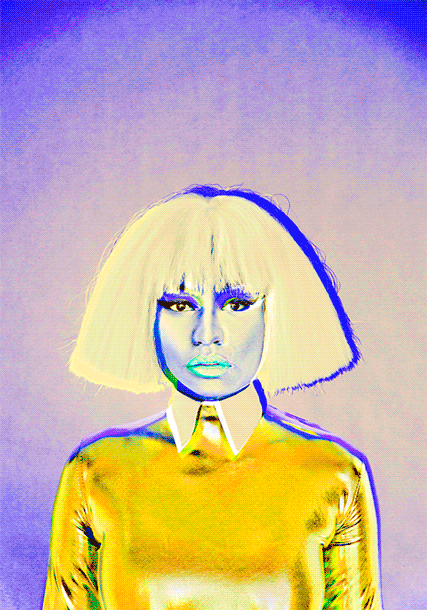NEW YORK TIMES: In another era, Minaj’s sexuality, expressed semi-parodically — pretending she’s a Barbie doll; glorifying women dressed as prostitutes and set in red-light-district windows — might have given feminists pause. But in the 2010s, we have entered a different world in pop culture, one in which sexual repression is perceived as burdensome and perhaps even an inability to holistically integrate the body and self. Young people are identifying and exploring formerly unknown, or at least unlabeled, frontiers of sexuality and gender. And the fact that Minaj is in charge of her own objectification (describing her vagina with more words than I thought existed, and then amplifying its power by rhyming those words), as well as her own monetization (overt product placement in videos is a hallmark) has led most feminist voices to applaud her. But the writer Bell Hooks remains unimpressed, saying of ‘‘Anaconda’’ at a New School panel titled ‘‘Whose Booty Is This?’’: ‘‘This [expletive] is boring. What does it mean? Is there something that I’m missing that’s happening here?’’
‘‘The frequency that Nicki works on is not the easiest frequency for us to wrestle with, because it’s about autonomy, and who has it, and whether we can actually tell the difference between self-objectification and self-gratification,’’ says Treva B. Lindsey, an assistant professor of women’s, gender and sexuality studies at the Ohio State University, continuing: ‘‘Do we even know what an autonomous female looks like in pop culture? What does control even mean in such a corporatized mass-media space?’’
On hip-hop radio shows, the dominant journalistic genre for the art form, Minaj speaks with a Queens accent, sometimes injecting it with Caribbean flair. But there was no evidence of that at the hotel, where she spoke in a night-after whisper that sounded like the hiss of a record before a song begins to play. ‘‘I never was political or preachy, but I’d stop my show and do two minutes of talking to my girls, boosting them up,’’ Minaj said, sitting in a small, straight-backed chair upholstered in the light gray fabric ubiquitous in luxury hotels, Columbus Circle’s billboards pulsing in the background as dusk fell. ‘‘They’d go home feeling, ‘Can’t nobody tell me [expletive].’?’’ And as her career went on, she realized she had more to say. ‘‘We got so many girls right now having children and don’t even know the first thing to say to a child, but you’re having a child because ‘I want to keep this dude,’ or it just happened,’’ she explains on her second album. ‘‘Why are we never in control? Why are we stuck with a baby? Why are we always stuck on the welfare line? Why are we always stuck having to beg, borrow and steal to provide for our children? Why do we think it’s something wrong for waiting to have a baby, waiting until you’re 35 or 36 to have children? Technology has changed — you can wait! Have something to offer them.’’ MORE

